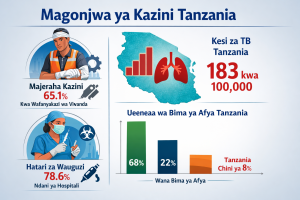
THE ESSENCE OF THE AFRICAN CONTINENTAL FREE TRADE (AfCFTA) IN DRIVING FOREIGN DIRECT INVESTMENT
The AfCFTA to Economic Sectors
The AfCFTA is among the world’s largest free trade areas bringing together 55 African Union (AU) member states and eight Regional Economic Communities (RECs) to create a single market for the African continent. It intends to eliminate barriers to trading activities, and significantly boost intra-African trade in value-added production and trade across all sectors of the economy.
Being a famous free trade area encompassing Africa, it is noteworthy that economic sectors should be able to enjoy the fruits of the terms and conditions of the agreement. It has many key provisions that side to could contribute to economic progress. For instance, Article 3(a) of the Agreement establishing the African Continental Free Trade Area of 2015, recognizes the objective of the agreement to create a single market for goods and services facilitated by the movement of people to deepen economic integration. The enhanced unity simplifies the sale of farming crops like sisal, the movement for businessmen, and the establishment of factories and industries in neighboring states.
FDI is a category of cross-border investment in which an investor resident in one economy establishes lasting interest in and a significant degree of influence over an enterprise resident in another country. The AfCFTA has a high ambition of promoting and enhancing investment protection in host states. As a backbone sector, FDI potentially can grow by placing their foreign assets and practicing all their economic activities in Africa with AfCFTA in place to encourage and support its secure and easier manifestation.
The Outstanding Benefits of the Agreement to Foreign Investment
With a connection and networking of about 1.3 billion people across 55 countries in Africa including Kenya, Uganda, and Tanzania, the AfCFTA will create a single market by uplifting cross-border barriers of different kinds. This includes foreign investors from the African region and all around the world attracted to the continent by access to an expanded market of consumers. People can now purchase goods in different countries simply because the Agreement has united them to become one to access goods and services easily.
Support can be given based on linking these requirements that aid in lowering the costs of businesses across the regions. It acts as a strategic plan to make the business world more favorable and smoother to practice considering what is needful such as privacy to ownership rules on foreign assets against the control from government machinery.
The framework requires participating nations to remove trade tariffs by 90% on goods produced and eliminate all sorts of non-tariff barriers such as long customs delays at the borders, import quotas, and
This strategy was formulated with four (4) high-potential sectors initially selected to represent opportunities for companies looking to invest in Africa. The sectors include automotive, agribusiness, pharmaceuticals, and Transport and logistics. What these sectors expect to see is a rapid acceleration in production and trade volumes under the AfCFTA. with the great potentiality of consumer demand. For example, the automotive industry is expected to grow to more than 42 billion US Dollars by 2027.
What Should Investors Do In Regards To Benefiting from The AfCFTA?
The remarkable and numerous opportunities offered by the Agreement can spearhead the economic prosperity of one’s Business. Such opportunities include the removal of trade barriers and a decrease in tax imposed on imported goods or products. Having such opportunities and creating their availability to stakeholders, African Union states would be creating an attractive environment to internationally develop one’s investment activity.
These include substantive issues that are to be clearly and predictably termed as investors’ obligations. For example, business ethics in working as per the required norms regarded, compliance to vigilance law involving the performance of economic activities while maintaining the environment of society, consumer protection, labor protection, and financial reporting standards. Compliance with these aspects would mean escaping from unnecessary economic obstacles like indirect expropriation.
Investors should read through the terms and conditions of the AfCFTA Agreement to familiarize themselves with the favorable principles recognized in investment. One among these international principles include the most favored nation treatment (MFN) that guarantees equal trading opportunity among states. By doing this, it will give them a better understanding over the trade area and see how beneficial it is for the purpose of boosting their comfortability in investing in Africa.
These are the writer’s own opinions and do not necessarily reflect the viewpoints of Liberty Sparks. Do you want to publish in this space? Contact our editors at [email protected] for further clarification.
Tag:#AfCFTA #FDI



